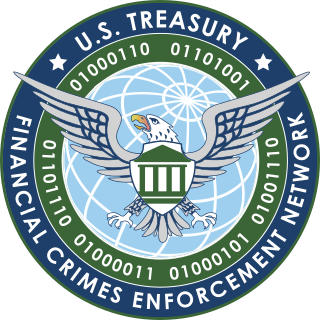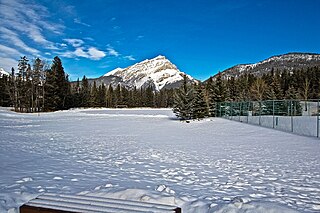Transparency International e.V. (TI) is a German registered association founded in 1993 by former employees of the World Bank. Based in Berlin, its nonprofit and non-governmental purpose is to take action to combat global corruption with civil societal anti-corruption measures and to prevent criminal activities arising from corruption. Its most notable publications include the Global Corruption Barometer and the Corruption Perceptions Index. TI serves as an umbrella organization. From 1993 to today, its membership has grown from a few individuals to more than 100 national chapters, which engage in fighting perceived corruption in their home countries. TI is a member of G20 Think Tanks, UNESCO Consultative Status, United Nations Global Compact, Sustainable Development Solutions Network and shares the goals of peace, justice, strong institutions and partnerships of the United Nations Sustainable Development Group (UNSDG). TI is a social partner of Global Alliance in Management Education. TI confirmed the dis-accreditation of the national chapter of United States of America in 2017.

Kleptocracy, also referred to as thievocracy, is a government whose corrupt leaders (kleptocrats) use political power to expropriate the wealth of the people and land they govern, typically by embezzling or misappropriating government funds at the expense of the wider population. One feature of political-based socioeconomic thievery is that there is often no public announcement explaining or apologizing for misappropriations, nor any legal charges or punishment levied against the offenders.

The Financial Crimes Enforcement Network (FinCEN) is a bureau within the United States Department of the Treasury that collects and analyzes information about financial transactions to combat domestic and international money laundering, terrorist financing, and other financial crimes.

In domestic and international commercial law, a beneficial owner is a natural person or persons who ultimately owns or controls an interest in a legal entity or arrangement, such as a company, a trust, or a foundation. Legal owners, commonly described as the "registered owners", may hold those interests as beneficial owners or for the benefit of someone else, in which case they may be described as a "nominee".

Global Witness is an international NGO that works to break the links between natural resource exploitation, conflict, poverty, corruption, and human rights abuses worldwide. The organisation has offices in London and Washington, D.C.

The Group of States against Corruption is the Council of Europe's anti-corruption monitoring body with its headquarters in Strasbourg (France). It was established in 1999 as an enlarged partial agreement by 17 Council of Europe member states.

Corruption in Armenia has decreased significantly in modern times, but remains an ongoing problem in the country. Despite this, fighting corruption following the 2018 Armenian revolution has recorded significant progress. Armenia is a member of the Council of Europe's Group of States Against Corruption (GRECO) and the OECD's Anti-Corruption Network and Armenia's anti-corruption measures are regularly evaluated within their monitoring mechanisms.

Corruption in Canada is the use of political power for private gain by Canadian government officials.
The Organized Crime and Corruption Reporting Project (OCCRP) is a global network of investigative journalists with staff on six continents. It was founded in 2006 and specializes in organized crime and corruption.

The International Anti-Corruption Conference (IACC) is a series of international conferences organised by the IACC Council, in association with local governments and organisations, with Transparency International as its secretariat. The conference was first held in 1983 in Washington D.C. and has since been held every two years in a different country.
The Financial Transparency Coalition is a group that brings together civil society and governments around the world to stem illicit financial flows that are costing developing countries nearly a trillion dollars each year. The Coalition was formerly known as the Task Force on Financial Integrity and Economic Development.

Corruption in Switzerland describes the prevention and occurrence of corruption in Switzerland.

Corruption in Georgia had been an issue in the post-Soviet decades. Before the 2003 Rose Revolution, according to Foreign Policy, Georgia was among the most corrupt nations in Eurasia. The level of corruption abated dramatically, however, after the revolution. In 2010, Transparency International (TI) said that Georgia was "the best corruption-buster in the world." While low-level corruption had earlier been largely eliminated, Transparency International Georgia since 2020 has also documented dozens of cases of high-level corruption that remain to be prosecuted.

Corruption in Myanmar is among the worst in the world. Owing to failures in regulation and enforcement, corruption flourishes in every sector of government and business. Many foreign businesspeople consider corruption "a serious barrier to investment and trade in Myanmar." A U.N. survey in May 2014 concluded that corruption is the greatest hindrance for business in Myanmar. The ongoing civil war has significantly set back anti-corruption efforts, exacerbating the problem.

Corruption in Bulgaria has decreased in recent years, after a series of reforms implemented through EU guidance. Among recent improvements, amendments to the constitution in 2015 brought about a reform of the Supreme Judicial Council and a stronger judicial inspectorate. Furthermore, the broader legislative framework has seen a number of reforms over the years, in particular through the amendments of the Judicial System Act in 2016 and of the Criminal Procedure Code in 2017.

Corruption in Azerbaijan is considered high and occurs at all levels of government. Corruption during the Soviet era was rife and persists into the present. As of 2024, Azerbaijan has regularly ranked near the bottom of Transparency International's Corruption Perceptions Index.

Snow washing refers to hiding illegitimate financial transactions often for purposes of tax evasion in Canada. The term is an amalgam of the words snow referring to Canada having cold snowy winters and washing referring to money laundering. It is easy under Canadian law to set up a company, even for a fee as low as C$200, while shielding the identities of the firm's real owners from the eyes of tax authorities. The global elite, as well as criminals and foreigners avoiding economic sanctions, can set up shell companies to "make suspect transactions seem legitimate" under the cover of Canada's reputation for fiscal integrity.
Anti-corruption comprises activities that oppose or inhibit corruption. Just as corruption takes many forms, anti-corruption efforts vary in scope and in strategy. A general distinction between preventive and reactive measures is sometimes drawn. In such framework, investigative authorities and their attempts to unveil corrupt practices would be considered reactive, while education on the negative impact of corruption, or firm-internal compliance programs are classified as the former.

The Canadian property bubble refers to a significant rise in Canadian real estate prices from 2002 to present. The Dallas Federal Reserve rated Canadian real estate as "exuberant" beginning in 2003. From 2003 to 2018, Canada saw an increase in home and property prices of up to 337% in some cities. In 2016, the OECD warned that Canada's financial stability was at risk due to elevated housing prices, investment and household debt. By 2018, home-owning costs were above 1990 levels when Canada saw its last housing bubble burst. Bloomberg Economics ranked Canada as the second largest housing bubble across the OECD in 2019 and 2021. Toronto scored the highest in the world in Swiss bank UBS' real estate bubble index in 2022, with Vancouver also scoring among the 10 riskiest cities in the world.

Better Dwelling is a Vancouver-based daily news publisher and financial media company. It operates Canada's largest independent housing news outlet.
















